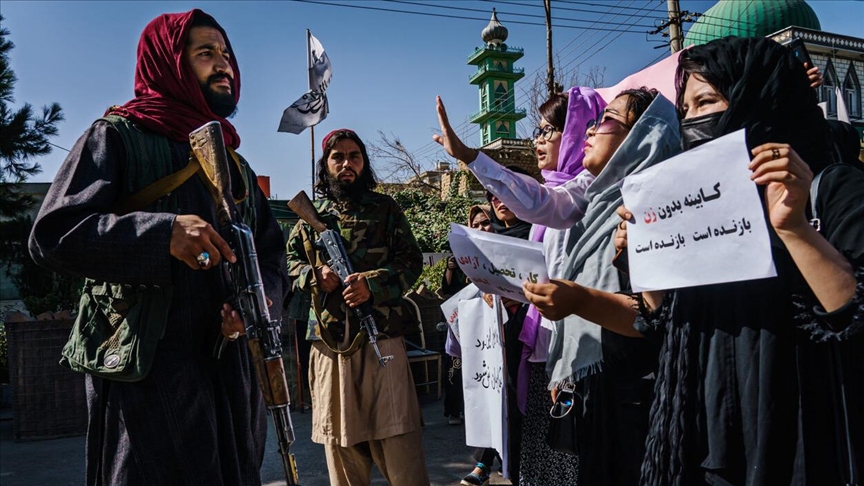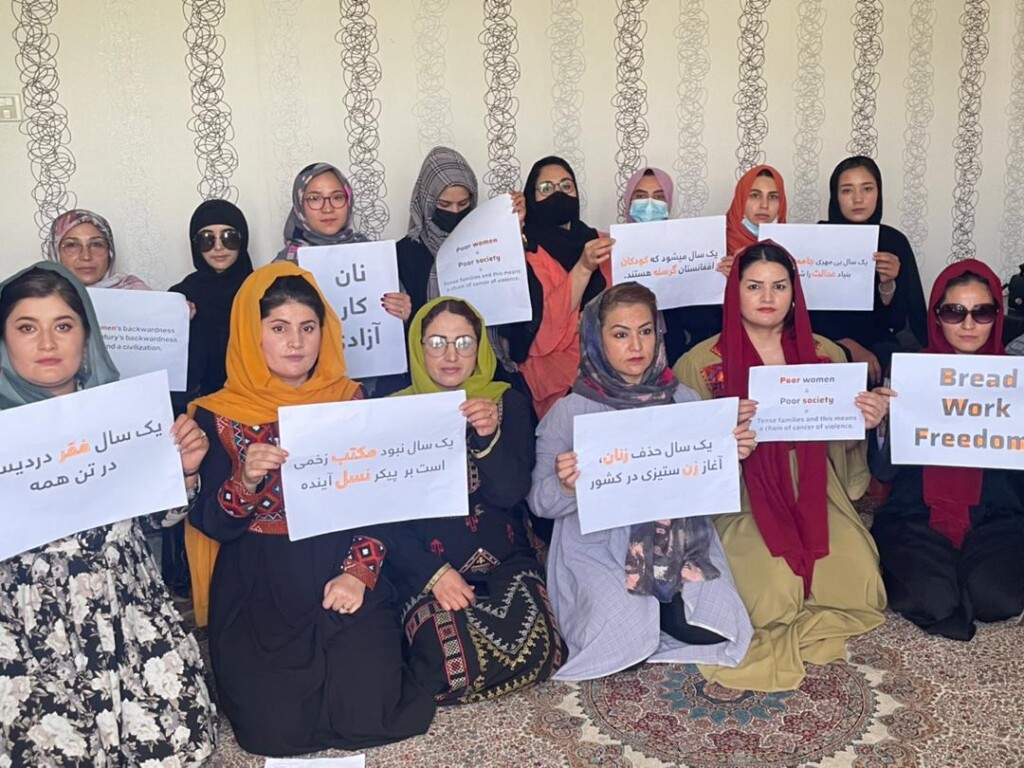Recent statements by Cheryl Benard, the wife of Zalmay Khalilzad—former U.S. Special Representative for Afghanistan Reconciliation—regarding the condition of Afghan women and girls, have sparked a wave of public outrage among citizens, women’s rights activists, protest movements, and political figures across Afghanistan.
Benard claimed that Afghan women remain active in society, often go out wearing headscarves without needing to cover their faces, and are not always required to be accompanied by a male guardian. She also stated that while the Taliban have barred girls from public schools, they can still attend private institutions.
These comments were condemned as distortions of reality and attempts to downplay the humanitarian catastrophe Afghan women face. Critics argue such statements indirectly legitimize and normalize the Taliban’s gender apartheid.
Ahmad Ramin, a Kabul resident, told Future Afghanistan “Cheryl Benard’s remarks are nothing but lobbying and whitewashing Taliban crimes. She denies the bitter realities of repression and discrimination, thus legitimizing a brutal regime. She ignores the poverty and unemployment gripping our people. I wonder what window she’s looking through in Kabul.”
Khaleda, a young woman also from Kabul, said Benard deliberately trivialized Afghan women’s plight, portraying the Taliban in a favorable light:
“Afghan women suffer daily under the Taliban’s oppression. Her comments are offensive.”

Former Afghan Vice President Amrullah Saleh reacted on X (formerly Twitter), stating that only Khalilzad and his wife enjoy complete safety under Taliban rule, while the majority of Afghans live under threat. He described Zalmay Khalilzad as the Taliban’s chief lobbyist and blamed him for the Doha Agreement that facilitated their return to power. According to Saleh, efforts by Benard and her husband to sanitize the Taliban’s image are part of a campaign to deceive the international community and erase the people’s suffering.
Dr. Amin Ahmadi, former peace negotiator and university professor, described Benard’s remarks as a blatant denial of gender apartheid and a justification of women’s oppression. He called for legal and political accountability for such statements, asserting that they amount to complicity in crimes against women.
Women protestors also condemned Benard’s comments, demanding she stop whitewashing Taliban crimes.
Julia Parsee, a former Taliban prisoner and prominent protestor, issued a scathing response on X:
“Cheryl Benard has never experienced Afghan women’s suffering. Her remarks are an insult. She and her deal-making husband continue to play the disgraceful role of sanitizing the Taliban. Shame on you for ignoring a nation’s tragedy to serve the enemies of freedom.”
Women’s rights activists accused Benard of misrepresenting reality and using her influence to sanitize a misogynistic regime. Roya Mohammadi, a women’s rights advocate, told Future Afghanistan:
“Benard’s statements are a deliberate effort to normalize and legitimize a woman-hating regime. She and her husband have long served as lobbyists for the Taliban’s interests. Now they are continuing that campaign by whitewashing Taliban abuses.”
She added: “When those directly involved in bringing the Taliban back to power speak of safety, education, and freedom under their rule, it’s not just ignorance—it’s betrayal.”

The Afghan Women’s Unity and Solidarity Movement issued a statement condemning Benard’s comments as lies, distortions, and an outright insult to the suffering of Afghan women. They emphasized that Benard, as the spouse of a key figure behind the Taliban’s return, lacks the credibility to speak on Afghanistan’s realities. Denying women’s oppression, they said, is tantamount to participating in Taliban crimes.
Similarly, the Afghan Turkic Women’s Protest Movement issued a statement condemning Benard’s remarks as an attempt to normalize gender-based apartheid and reject credible global reports documenting systematic human rights violations in Afghanistan.
Benard made her comments in an article published on The National Interest, where she wrote:
“Afghanistan is experiencing one of its safest periods, and concerns over refugee returns are exaggerated. On my recent trip to Kabul, I saw women working, running shops, and moving freely. The situation is not as bad as portrayed. Though the Taliban have barred girls from public schools, returnees can enroll their children in private schools, which are still operating.”
Fatima Rahmani, a university professor and women’s rights advocate, responded sharply:
“Where is this security she speaks of? In a country where the Taliban torture hundreds in secret prisons, publicly flog men and women, and humiliate people for their ethnicity and beliefs?”
She added that promoting private education in a country where most people can’t afford basic food is offensive and tone-deaf.
“Cheryl Benard knowingly echoes the Taliban’s narrative. Her statements continue the lobbying agenda that her husband began in Doha.”
It’s worth noting that the Taliban have not only banned girls from public schools and universities, but have also increasingly shut down private institutions for girls. Benard’s comments come as Afghanistan, under Taliban control, continues to face deep political, social, and economic crises. Women’s rights remain one of the most pressing human rights issues globally, with the Taliban imposing severe restrictions including bans on education, employment, public presence, and punishing dissent with imprisonment and violence.




